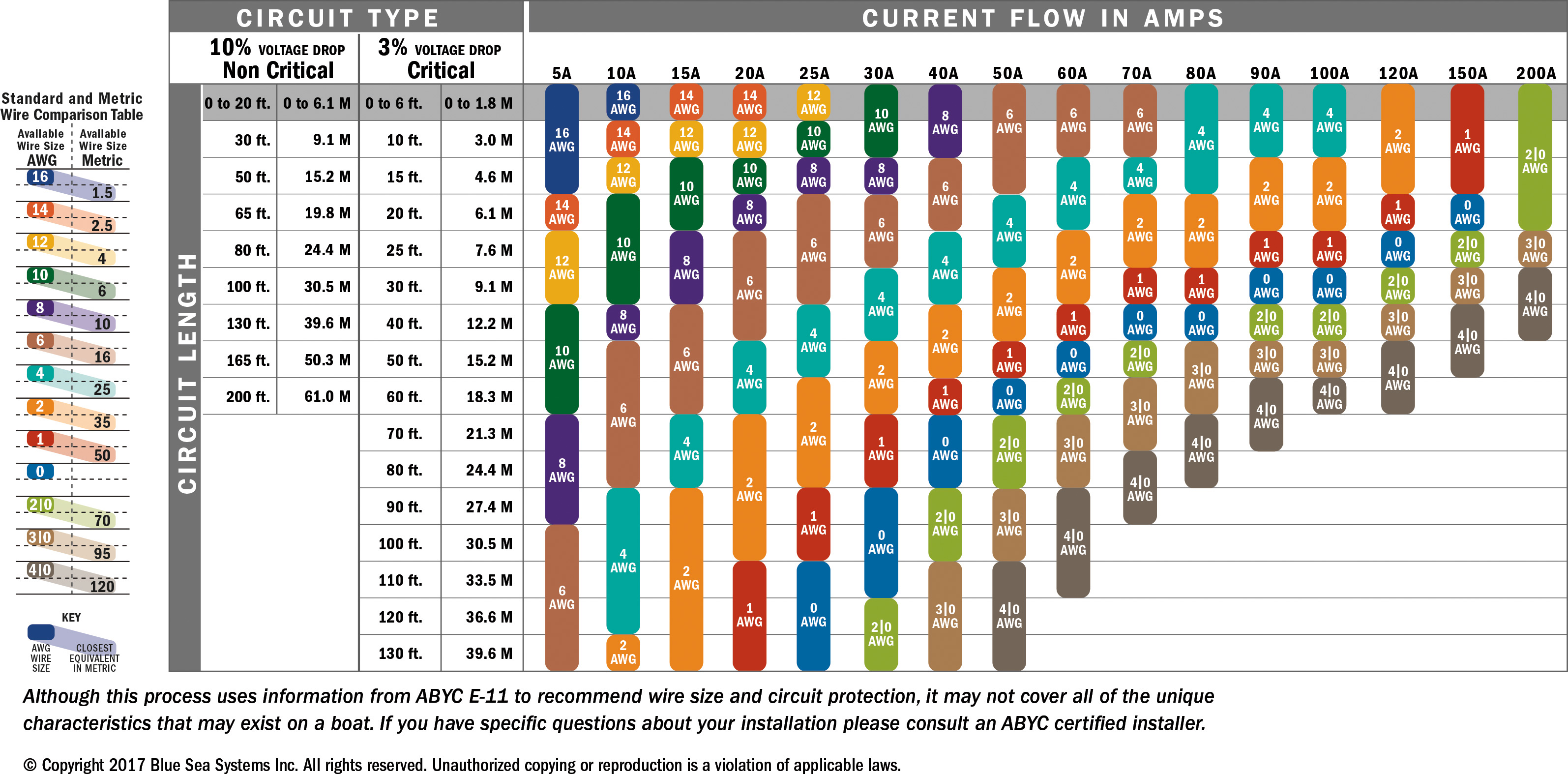Hi all, I'm planning out the electrical system in my truck and I'm not really sure how to figure out what size wires to use. Hoping y'all can help.
Specs:
I've got about an 8 ft. run from my battery to the new auxiliary fuse box. Fuse box is rated for 100a. I'm not sure if I'll need all that or not.
I plan to run power to the back of the truck bed to a 12v panel with a 15A breaker. It's about 14 ft from the fuse box, so figure maybe 16 ft. of total wire to account for vertical runs?
I also will be running wire to the shell to power the small overhead light and two 5 ft LED strips. Not sure how much power that will draw. Figure maybe 20 ft. for this one.
I usually run 0 or 2ga from the battery to the starter, 8ga from the battery to fuse box, 10ga for high amp stuff like fans, fuel pump, and power side of relays. Then 18ga for all my aux/low amp wiring. Like you said, your probably never going to use all 100amps at the same time.
When in doubt look at the chart. Make sure you're using AWG rated wire though, not chinese stuff.

The chart above is great. There's one in my thread on wiring my truck that lists shorter distance runs, something I needed since my system is close to the battery.
ninja edit: my feeling is I always want the fuse to be the weak spot, so if I'm using a 15amp fuse I want the wire to safely carry, say 20 amps. On mine the panel max is 200, the main cables are good for something like 180 and the breaker is 150amp.
I'll second checking for copper, true AWG wire when buying, especially off Amazon. I ended up buying marine wire from a known brand just to be sure. There's a lot of the Chinese stuff that counts the outer diameter of the insulation as their wire size, not the actual conductor. They also sneak in copper coated aluminum wire if you don't read the fine print.
ultraclyde (Forum Supporter) said:
ninja edit: my feeling is I always want the fuse to be the weak spot, so if I'm using a 15amp fuse I want the wire to safely carry, say 20 amps. On mine the panel max is 200, the main cables are good for something like 180 and the breaker is 150amp.
I've worked directly with OEM wiring harness guys here in Detroit, and they always say "the fuse protects the wire, not the device", so you're definitely on the right path
And really, you're just protecting the insulation ON the wire from melting OFF of it. 
For battery cabling, welding cable is the best you can get. Do that right once and never think about it again. You only really need the long run of positive because the negative will ground to body/chassis and be fairly short.
In reply to Vigo (Forum Supporter) :
I was planning on running the negative on the fuse box back to the battery. And then running the negative for all the accessories back to the fuse box. Is that foolish?
In reply to thatsnowinnebago (Forum Supporter) :
For a negative ground, steel body vehicle I wouldn't worry about it. Unless you are running some high zoot radio equipment in Which case grounding to batt might be advisable.
my relay box only had a ground circuit for the relay actuation which I ran to the factory fender bolt.
The HAM will get wired with it's negative to the actual buss, not to a chassis ground. The rest is seat heaters, LEDs, 12v outlet panel, big lights.
A dedicated ground wire isn't necessarily better than a chassis ground, it just has 2 less connections (the ring terminals which bolt to the body). The body/chassis itself is guaranteed better than any wire in terms of resistance, while the connections are pretty much always the cause of high resistance. So less connections is better, but when you're running a ground wire for every single thing you're spending a lot of extra money to create a whole bunch of wiring clutter in your car, and that's a huge downside. As long as you are making good connections with good practices you will see no benefit to a dedicated ground wire over chassis ground.
In reply to Vigo (Forum Supporter) :
Awesome, chassis grounds are way cheaper too. Less wire to buy. And your reply made me realize why my fuse box has the negative buss: it's designed for boats. Boats aren't always metal.
In reply to thatsnowinnebago (Forum Supporter) :
Ah, right. I put a Blue Sea Sytems mini panel in my trihull and had to deal with that.
I did run grounds back to the main fender ground on my off road LED lights simply because they are grill mounted and on my truck the grill goes up with the hood. Instead of trusting the hood ground strap I just ran them back with the positive lead. I also have a power point for an air compressor in the bumper and since the cable I bought was a duplex I figured there was no reason to split it.
Clever to put a power point for your compressor in the bumper. I still use the alligator clips. Might steal your idea...
In reply to thatsnowinnebago (Forum Supporter) :
Go for it. I got tired of people asking if I needed help while I was airing up tires with the hood up lol.























